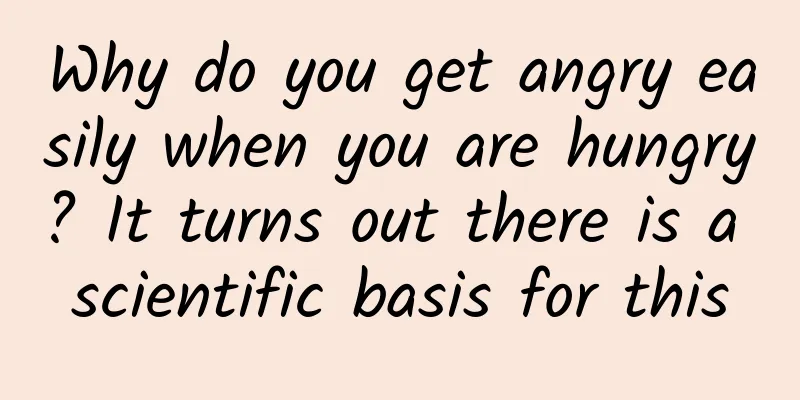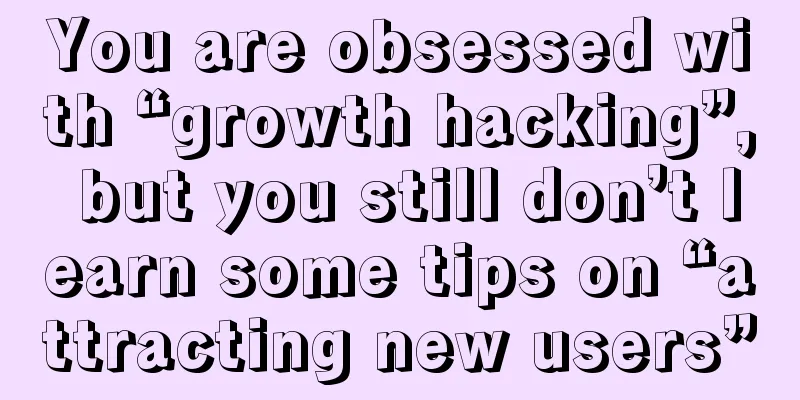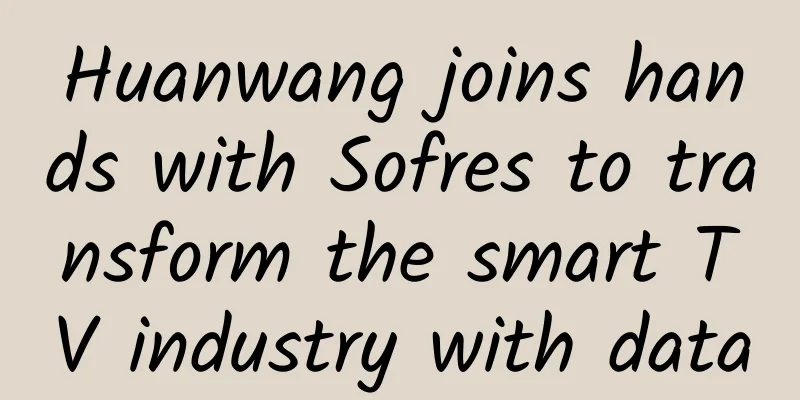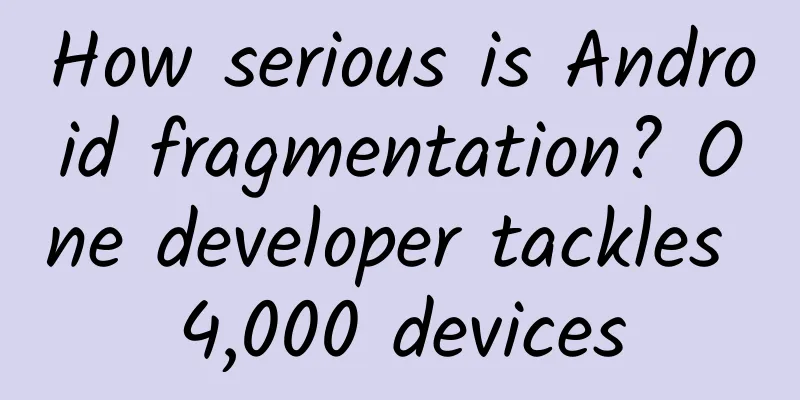Why do you get angry easily when you are hungry? It turns out there is a scientific basis for this

|
© Lindau Nobel Laureate Meetings Leviathan Press: Thinking about it carefully, I do become more emotional when I am hungry, and at that stage, a casual remark from someone around me may make me lose my temper. But I have never thought about the relationship between hunger and emotions. I always feel that there is a vague connection between hunger and irritability, and the subtext is roughly as follows: I am so hungry, and you are still discussing issues unrelated to eating with me, is this really okay? So, next time you lose your temper for no reason, ask yourself: Am I just hungry? Dieting is widely hailed as a path to improved health and well-being, often endorsed by celebrities, and constitutes a thriving $250 billion industry. But let's face it: dieting can be pretty miserable sometimes. A study of nearly 2,000 overweight and obese people[1] found that those who successfully lost weight had almost 80% more depressive symptoms than those who did not. It’s not a compelling pitch for selling calorie reduction, but hunger can affect our psychological state in a number of ways, not least by making us “cranky,” a well-known emotion that flares up when too much time passes between meals. © Gifer In fact, research is beginning to suggest that fasting may negatively affect our mood, cognition, and judgment, at least in the short term.[2] As we outline in our recent book on the internal and external factors that influence and manipulate the way we think, all of this ultimately affects our ability to think and make decisions. This is an issue that goes deeper than dieting[3]: in a world where many people struggle to feed themselves, it’s worth remembering that hunger can exacerbate inequality. One study[4] found that after schools in India provided mid-day meals, students’ cognitive performance improved by 13% to 16%. It’s no surprise that without adequate nutrients and calories, our brains may struggle to develop and function properly[5]. But how does everyday hunger affect our thinking? --- Emotions have a profound effect on our thinking, especially when we don’t really understand or acknowledge them – this is because it’s easier to regulate our emotions when we are aware of where they come from and how they influence our thinking and decision-making. Being depressed often makes us more pessimistic, which in turn causes us to think more negatively. And, research shows that if you don’t fully appreciate how worried you are about an upcoming medical test, you’ll be more risk-averse when making unrelated financial decisions.[6] Similarly, if you try to sell a jacket online after watching a sad movie, you’re likely to sell it at a lower price. But what does this have to do with our meals? © Gifer Well, hunger appears to be a reliable driver of negative emotions and low mood. In a 2022 study[7], psychologist Nienke Jonker of the University of Groningen in the Netherlands and her colleagues asked 129 women about their hunger levels, eating habits, and moods, about half of whom were asked to fast for 14 hours. They found that the hungry women reported more negative emotions, including higher levels of tension, anger, depression, fatigue, and confusion. They also reported lower positive emotions, such as energy. "These effects are not negligible," Jonker said. In fact, the hungry women reported, on average, more than twice as much anger as those who were not hungry. They were literally in "hangry rage." Being in a bad mood can completely change how we interpret the world. If you’re in a negative mood, you’re more likely to remember negative things, which can make you feel even worse.[8] This negative framing can lead to errors in how we interpret our surroundings, causing us to see the world in black and white terms and ignore crucial nuances.[9] When we are depressed, we also tend to pay more attention to negative details than positive ones, which can make us feel bad about ourselves and wary of others. Our emotions have a powerful influence on the way we think. © Getty Images In another series of experiments[10], psychologist and neuroscientist Kristen Lindquist of the University of North Carolina at Chapel Hill and her colleagues found that being hungry increases people’s tendency to be manipulated by negative emotions. They showed 218 workers (some of whom were hungry) neutral, positive, and negative images (such as an angry dog) and then asked them to judge whether a more ambiguous image (a Chinese character glyph) was positive or negative based on their intuition. Those who had first seen the negative image were more likely to rate the glyph as negative, even though they had been told not to be influenced by the preceding image. Moreover, participants who described themselves as hungry before taking the test were more likely to be manipulated in this way. © Unwritten Not only does hunger make us feel negative and down, it can also make us more impulsive—something to keep in mind if you’re writing your resignation letter before lunch—and more punitive. A famous 2011 study of Israeli parole judges[11] seems to indicate just how much the latter influences our decision-making. The study found that judges were more lenient in cases at the beginning of the day and after lunch, when they were full, and less lenient before lunch or at the end of the day. While the study has been criticized — other factors, such as how cases are scheduled, rather than just how hungry the judges were — the science does support the idea that we become more punitive when we’re hungry. Lindquist points out that it is often difficult to pinpoint the cause of an effect in real-world studies, such as during a parole board hearing, where there are always other possible explanations. But in laboratory conditions, these factors (variables) can usually be controlled. To test whether people are really harsher toward others when they are hungry, Lindquist invited 236 subjects into her lab[12]. About half of them had fasted for at least five hours, while the other half had eaten beforehand. They were then asked to perform a monotonous task on a computer—rotating geometric figures—when suddenly the computer crashed (or so they thought)—forcing them to start over and complete the task again. At the end of this frustrating exercise, participants had the opportunity to evaluate the researcher, potentially venting some vindictive resentment. "Hungry people, especially those who weren't paying attention to their emotions or focusing on their inner states, were more likely to rate the researchers as harsh (negative ratings that researchers interpret as punitive) on a little rating scale we provided," Lindquist said. The exact reasons why hunger causes us to feel and behave in the way that we do are complex. It may be due to impaired self-control caused by the lowered blood sugar levels that occur with fasting. The theory seems to suggest that we are all prone to negative thoughts about the world, but we can regulate these thoughts - until hunger disrupts our ability to regulate. However, this view has been criticized, and other theories have become more popular. For example, Lindquist argues that feelings like "hunger" are actually just physiological states misinterpreted as emotional states. Lindquist's findings support this view, showing that people who don't reflect on their emotions when they are hungry are more likely to misinterpret these emotions and become more angry and punitive. “When you’re hungry, your body amplifies your experience of a particular situation,” Lindquist explains. “So maybe under normal circumstances you wouldn’t be annoyed at all by a slight inattention from a coworker, but when you’re hungry you might interpret that as a horrible remark.” People on a diet can learn to interpret some negative thoughts as hunger cues rather than just negative emotions. © Healthwatch Kent This idea could be a major breakthrough for people who are dieting. If the negative psychology of feeling hungry is due to our misunderstanding of physical sensations, then perhaps we can learn to reinterpret those physical sensations in a better way. This could work in a similar way to cognitive behavioral therapy (CBT), which helps us reframe our thoughts and emotions. Jonker’s research on the emotions of hungry women seems to support this – she found that women with eating disorders experienced more positive emotions when hungry than those without such symptoms [13]. Although eating disorders are complex mental health conditions, the findings suggest that these women had relearned the “normal” association of hunger with negative experiences. This kind of psychological reframing is dangerous and can backfire when you’re struggling with an eating disorder, but Jonker is looking for more positive ways to use it. From an evolutionary perspective, we may have mistakenly interpreted hunger as a highly unpleasant feeling. After all, when we are low on nutrients, our brains want us to move, not sit back and relax. “Hunger is accompanied by an impulse that drives us to go out and forage for food, potentially prioritizing immediate benefits over long-term gains,” Lindquist added. A study by the University of Dundee in the UK showed[14] that when people are hungry, they tend to focus more on immediate benefits and find it difficult to delay gratification. The researchers offered participants an immediate reward of either £20 in cash, 20 song downloads, or twice that amount in the future. If the participants were not hungry, they were willing to wait patiently for a longer reward, 90 or 20 days respectively. But among the hungry participants, these numbers dropped to 40 and 12 days respectively. This makes sense if the purpose of hunger signals is to motivate us to act now, rather than planning further into the future. Food restriction can also affect our cognition more directly. A review of studies examining the effects of fasting on cognition found that attention and cognitive flexibility (the ability to switch between tasks) were particularly affected[15]. Most of us know that when we feel hungry, our attention is constantly occupied by thoughts of chocolate cake, potato chips, or spicy noodles. Research has shown[16] that this is quite common—hunger increases our attention to food-related cues. Again, this fits with the idea that physiological hunger is designed to motivate us to go out and get food, and that distracting our attention from everything else is the first stage in this process. © Beverly Hills Therapy Group However, in the modern world, especially in the West, it is easy to get food. Therefore, being distracted by hunger is no longer so useful. This may create more disadvantages than advantages. Jan Rummel, a cognitive psychologist at the University of Heidelberg in Germany, and his colleagues tested whether hunger made people more likely to have paranoid thoughts, such as fantasizing about food. "Typically, if you find people's mind wanders, performance on the task they're doing will decline," he explained, adding that the effect only applies if the task is sufficiently complex, such as reading. "If we're ironing or something, then I think we can let our mind wander and it won't affect performance because the task is simple enough." He set out to test the extent to which hungry people's minds wandered during a complex task - reading 27 pages of the novel War and Peace and then taking a reading comprehension test. They were also asked whether their minds wandered, and if so, what they were thinking about. For the test, 39 people were asked to enter the lab after not having eaten for five hours, while another 91 were told to enter after having eaten a full meal. Of the latter group, 46 were asked to listen to a recording of an erotic story to see if that would increase their wandering thoughts. The researchers found that the more people's minds wandered, the worse they performed on the task. The hungry group was the most prone to wandering thoughts, with these individuals thinking 10% more than the other two groups, mostly about food. This seems to suggest that hunger may be even more distracting than sex. However, it may not just be a matter of poor attention. Hunger also appears to reduce cognitive flexibility, which is important in any type of cognitive task, including reading comprehension. This executive function facilitates complex thinking by allowing us to easily switch perspectives and abandon strategies that no longer work in favor of better ones. Psychologist John Parkinson at Bangor University in the UK has shown that hungry people who are troubled by thoughts about food are more likely to make errors on tasks measuring cognitive flexibility[17]. “It’s similar to what we do with fear and anxiety,” Parkinson explained. “If I show you a picture of a snake or something to put you in an anxious state, you actually narrow your cognitive focus. So you reduce your cognitive flexibility and really focus on how to get rid of that snake. ” Likewise, when we feel hungry and try to get rid of that feeling, our thinking is significantly affected. If you try to problem-solve during these times, Parkinson says, "you're likely to choose simpler, immediate solutions rather than long-term, complex ones." It's not advisable to buy food when you're hungry, as you're likely to end up with a bunch of junk. © Getty Images Simple decisions, like what to eat, also require cognitive flexibility. If we’re dieting, for example, we need to be flexible enough to resist eating high-fat, high-carb foods. But if we go shopping in a state of hunger and mental rigidity, Parkinson adds, we’re “just going to buy a bunch of crap.” Hunger is a powerful signal because it ultimately helps us survive. But because of this, it can seriously mess with our thinking. When we’re hungry, we’re likely to have trouble processing complex cognitive tasks, nuance, and focus, and instead opt for simpler thinking methods, often driven by biases and stereotypes. Irritability, impulsivity, punitiveness, and fixation on the present can further muddy our thinking, especially when we don’t realize that these emotions are simply due to hunger. When we’re hungry, we may struggle with complex cognitive tasks, nuance, and attention, and opt for simpler thinking methods that are often driven by biases and stereotypes. Irritability, impulsivity, punitiveness, and being stuck in the present moment—especially when we don’t realize these feelings are simply caused by hunger—can further compound the confusion in our thinking. Still, being aware of it can be very useful. For example, the next time you feel angry or down, maybe ask yourself if you’re just hungry. © Gfycat If you understand where your emotions are coming from, you’re less likely to be manipulated by them. If you have important tasks to accomplish, like writing a report at work, making an investment decision, or communicating about a relationship problem, avoiding hunger makes sense. (You should also avoid eating too much, since overeating can also impair cognitive function.) A simple solution for those who have difficulty making food choices is to make food choices in advance, that is, to make decisions before hunger and its many effects on our thinking set in. This might involve reading a menu before going to a restaurant, or writing a list before shopping. But ultimately, you may want to consider the emotional and cognitive costs of losing weight, especially if you already have a healthy weight. (And it’s possible to stave off hunger pangs by eating a healthy, low-calorie diet.) After all, what’s the point of having a “beach body” if you’re depressed or confused and can’t enjoy your vacation? References: [1]journals.plos.org/plosone/article?id=10.1371/journal.pone.0104552 [2]journal.psych.ac.cn/xlkxjz/EN/10.3724/SP.J.1042.2020.00141 [3]www.sciencedirect.com/science/article/pii/S0022316622164527 [4]papers.ssrn.com/sol3/papers.cfm?abstract_id=3457671 [5]www.nature.com/articles/s41538-017-0008-y [6]www.apa.org/pubs/journals/releases/emo-emo0000422.pdf [7]www.sciencedirect.com/science/article/pii/S019566632100653X [8]www.goodreads.com/book/show/50722301-be-extraordinary [9]journals.sagepub.com/doi/full/10.1177/2167702617747074 [10]www.apa.org/pubs/journals/releases/emo-emo0000422.pdf [11]www.pnas.org/doi/full/10.1073/pnas.1018033108 [12]www.apa.org/pubs/journals/releases/emo-emo0000422.pdf [13]www.sciencedirect.com/science/article/pii/S019566632100653X [14]link.springer.com/article/10.3758/s13423-019-01655-0 [15]europepmc.org/article/med/34595721 [16]www.sciencedirect.com/science/article/abs/pii/S0195666309006485 [17]www.tandfonline.com/doi/abs/10.1080/02699930802012153 Text/Miriam Frankel, Matt Warren Translated by Three Trees Proofreading/Rabbit's Light Footsteps Original article/www.bbc.com/future/article/20230822-how-hunger-can-warp-our-minds This article is based on the Creative Commons License (BY-NC) and is published by 3trees on Leviathan The article only reflects the author's views and does not necessarily represent the position of Leviathan |
Recommend
2020 Hubei Provincial College Entrance Examination Xiangyang Liberal Arts and Science Champions: Zhu Caiye, Yue Kun
In the early morning of July 23, the channel for ...
How can a novice master Dreamweaver? How to build a Dreamweaver website?
How to play the Dreamweaver website for beginners...
NIO reports third-quarter net loss narrows
Just now, NIO released its third-quarter financia...
How to do investment advertising?
Nowadays, investment promotion advertisements are...
Making the most of heat: the Pang Ya Ka effect of combining cold and warm
“Make the best use of heat” - as the name suggest...
SAIC Group: SAIC's vehicle sales will reach 381,000 units in March 2024, with new energy accounting for 22%
SAIC Motor released its production and sales repo...
The 5th China (Shenyang) International Mobile Phone Expo is in full swing
The 2014 China (Shenyang) International Mobile Ph...
The mysterious "Poison King", this element is so poisonous!
In October 2013, an academic paper comparable to ...
Marketing skills from an advertising master!
Due to the difference in consumer psychology, pro...
How to choose an open source project that suits you to read
[[148226]] People say that reading source code is...
ARC Advisory Group: Top 10 Predictions for Industrial Internet of Things Technologies and Strategies in 2016
Industry analysts have made their top 10 predicti...
High conversion model for live broadcast room!
Being keen on breakthroughs in gameplay and ignor...
QQ major update: Tencent asks primary school students to pay five stars in one go
During the epidemic, classes can be suspended but...
Can running a marathon cause sudden cardiac death? Five things to keep in mind when running long distances
The 2023 marathon events are coming, and the ones...
Summary and comparison of the three major free new media channels for increasing APP downloads!
The ultimate goal of new media for APPs is to dri...









